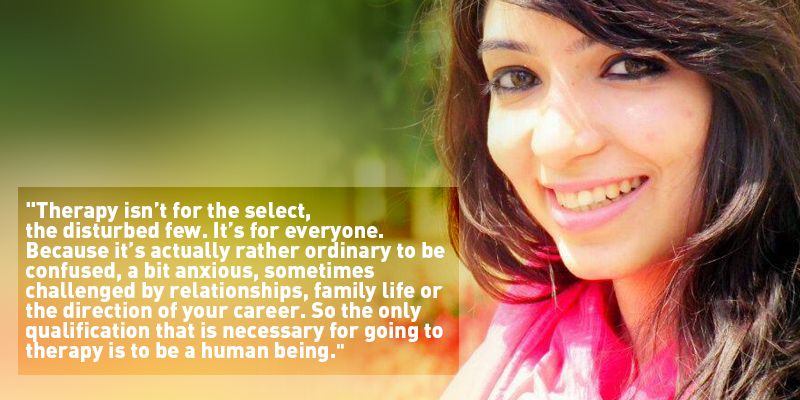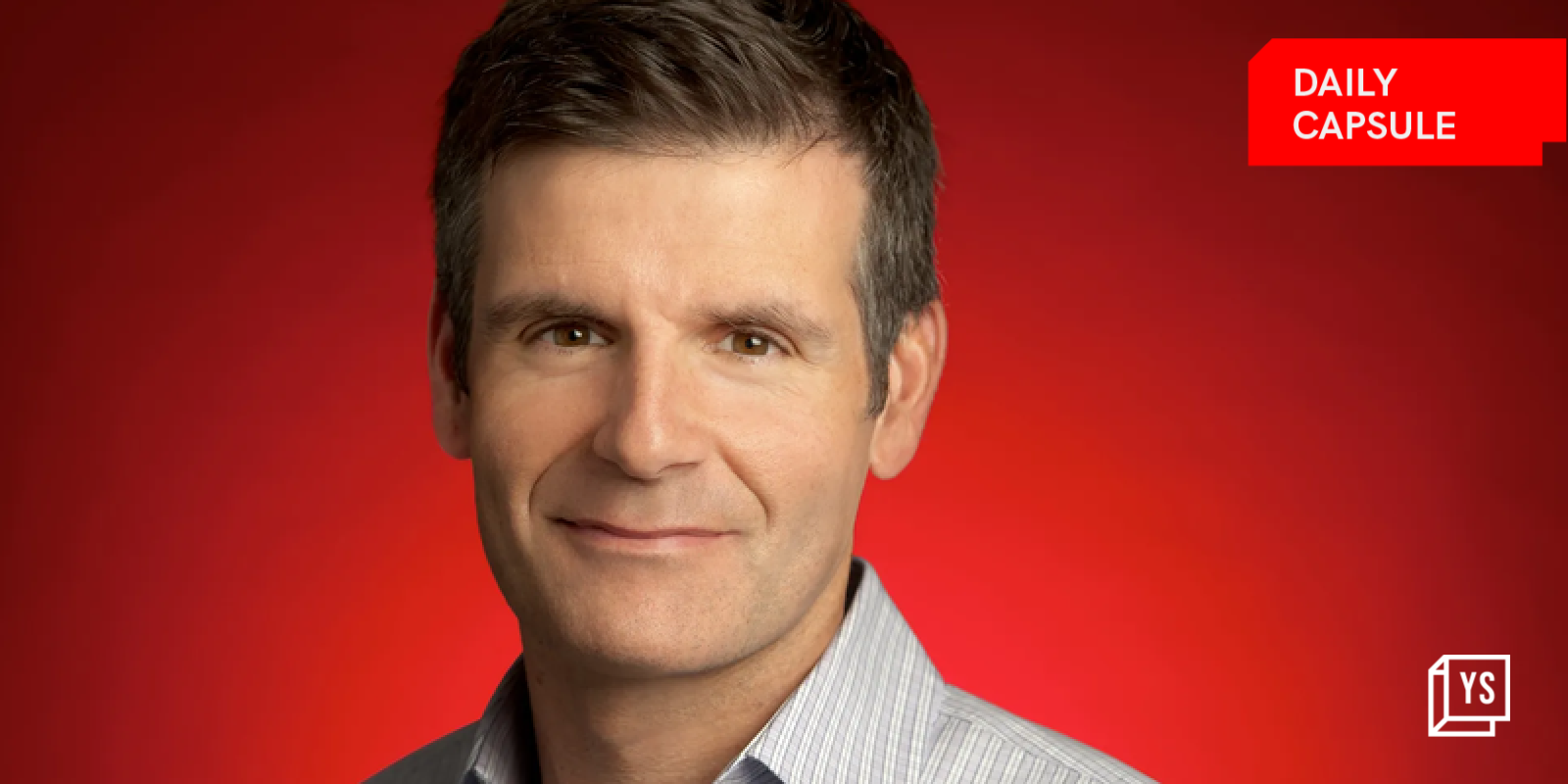The only qualification necessary for going to therapy is to be a human being: Psychologist Charvi Jain on starting Over a Cup of Tea
Prior to starting up, Charvi Jain says she was looking for jobs. However, having worked at various settings in the mental health sector, be it hospitals, private mental health centres and elderly homes, she felt that there was a very important element missing from the way these services were offered to people- the personal touch. “Since the service is related to health I understand the need for seriousness and maintaining a professional outlook. However, certain things like psychologists wearing lab coats, conducting numerous tests, and having a very clinical approach can be a little mechanical and counterproductive for persons who are supposed to talk about emotions. In my opinion, this approach was adding more to the already existing stigma rather than breaking it,” she says.
Over a Cup of Tea
She envisioned doing it differently if she had a place of her own. And then it struck her- why not open a place of her own? She went full steam ahead and launched Over a Cup of Tea, a psychological wellness centre in November 2014 in Kolkata. Here, Charvi hoped to combine her psychological training with her instinct for compassion and empathy in providing personalised care for her clients. She prefers to call them clients and not patients because of the need to have professionals who are sensitive to people’s issues, who look at them as people and not patients, who look at their problems and issues as their narratives and not symptoms.

By naming her venture Over a Cup of Tea, Charvi intends to change the way people perceive counselling/psychotherapy by giving a subtle message that counselling is just like having a heart-to-heart chat with someone over a cup of tea. “The only difference is that in this case, instead of friend, it is a trained psychotherapist who will be able to hold your emotions in the right manner, show no judgement, give full attention, and give valuable insights,” she clarifies. “The work during sessions here is also much more collaborative in nature than directional.”
Charvi designed Over A Cup of Tea to reflect this philosophy rather than the more clinic-like setup that mainstream counselling centres in India resemble. “You just need to pick up the phone and fix a suitable time, just like you do when you meet friends, colleagues or relatives. When you come, you will be welcomed by our psychologist and made comfortable in a warm and homely ambience offered a range of exciting tea variants (from lemongrass flavour to strawberry to Tulsi, we have it all, no kidding!) to choose from. The psychologist takes the session forward by hearing your story/narrative, adds her insights, and uses subtle psychotherapeutic techniques to collaboratively work with you in helping you be healthier emotionally, more balanced and a more resilient individual,” she says.
De-conditioning shame
India is one of the youngest countries in the world, population wise. By 2020, the average age of the Indian citizen will be 29. Yet it is also one of the unhappiest. The suicide and depression statistics are alarmingly off the charts. “I think it has a lot to do with the increased competition, the added stress levels, the lack of work-life balance, and of course the stigma of seeking help adds to it. In the Indian context, it also has a lot to do with parenting pressures, the conflict of doing what one wants versus fulfilling their parents’ expectations. In my experience with many young clients, the education system of the country has also been a big factor in adding to their loss of interest, and steps need to be taken to make academics especially courses such as engineering and competitive examinations like CA to be more practical and engaging,” Charvi says.

While the perceived shame and stigma are hard to battle through, Charvi is excited about how the mental health industry is evolving. “We have come a long way from having a medical-only approach to accepting evidence based psychotherapies. We are now moving towards even newer modalities like dance movement therapy and art therapy,” she says.
Funding and scaling
Charvi isn’t fazed by competition because she feels her approach is unique: “Mental Health as a field is huge and there are a number of organisations and private practitioners in the city who offer counselling and psychotherapy. However I believe we stand out as our approach is very different.” Over A Cup of Tea is funded from Charvi’s personal savings. “As the venture is picking up, the revenues are also slowly flowing. At this scale we are a sustainable entity. However, we do have expansion plans, which will require some funding. Since we are a service-based industry and my primary costs are manpower costs, at an operational level, we are already a profit-making enterprise,” she says.

She admits that in the early days growth was slow and the pace was hard to pick up. “But now our clients are increasing exponentially. We just touched the 150 mark this September,” she says exuberantly. “On a month on month basis, our client base has been increasing on an average by 50%. Since this is a very relationship based service industry, our growth hacks are the word of mouth, publicity and the referrals that we are getting from existing clients. Once our clients have experienced a session with the psychotherapist, on seeing the benefits, they often bring in other people they care about.”
Charvi has a two prong scaling plan. “For within the city, apart from the B2C model that we have right now, we are also looking at B2B collaborations with schools, colleges, corporates, hospitals and other wellbeing centres. We would like to provide these institutions with complete psychological health care solutions by offering our counselling services in the respective institutions. We also offer psychometric tests for corporate clients. Apart from this we are also planning on opening branches in other tier-2 cities like Jodhpur, Indore, and Guwahati.”
Success stories
Emotional wellbeing is highly subjective and Charvi feels it difficult to point out the impact of her work in hard data. Rather, she shares some stories of personal resilience that demonstrates the value of her work. “I have had clients who’ve struggled with low self-esteem for years and now they are able to lead their lives confidently and happily.
I have had clients who have gone through phases of depression, and never found anyone who understood them. But coming here, they felt understood and heard and found their will to fight the depression off.

I have had young clients, in college, or beginning of their work life, extremely miserable because they were stuck with a career that they didn’t like. After a few sessions they were able to either come to an acceptance or make a breakthrough by switching to doing something they are passionate about.”
Over A Cup of Tea has ambitious CSR offerings in the pipeline for the near future. Charvi explains, “Mental health should be a basic prerequisite not just for folks like you and me who can afford luxuries but also the underprivileged who find it hard to get even the basic needs met. We plan to cater to them by holding camps in the villages of West Bengal where we will be psycho-educating them about emotional wellbeing and teaching them healthy coping techniques. Through these camps we also aim to reduce the stigma related to mental illness, by targeting the black and white thinking that is prevalent across amongst majority of the people. The idea that a person is either ‘mad’ or sane, has to be challenged and replaced by the understanding that we all exist in a continuum of various shades of grey.”
Personal struggles
Charvi says, “According to me, the hardest part is sustaining the faith in your idea, your venture until it starts to do well. Because people around you are sure to convince you otherwise.” When she was starting out with this idea, she was just newly married. Nobody except a select few in her and her husband’s family thought that this venture would work given the nature of the industry and the stigma that exists around it. Her new family, owing to their business background, quite naturally expected me to be involved in their family business rather than wasting my time into something that would not work.

“So yes the idea was not looked at very positively, because of which I also began to have apprehensions against starting it. But thankfully my passion for this field overpowered my scepticism and gave me the will to stick to it. When it started to grow and results started flowing in, there was of course no looking back,” she smiles.
Her best piece of advice came from her father in law, who is a self-made man in his own right. She recounts, “He told me very simply that until we jump into the pool we can’t learn to swim. He then backed it up with his own examples. He was just a young 20 year old pass out from St. Xavier’s College Kolkata, when he started out on his own. He got into trading of tea while having no idea about tea at all. Of course he faced hardships and it was difficult for him to navigate this way through into the industry. But that plunge eventually led him to who he is today – owner and MD of a big agro and logistic firm.”
For Charvi, the best part about starting up has been priceless: “Not having to compromise on my ethics and ideas and values, to have the independence in running it the way I have envisioned it.”
Advice
For aspiring entrepreneurs looking to create change through their ideas, Charvi says, “You only learn when you start. I don’t think anything can teach and prepare you for the challenges that come by on starting a new venture other than actually starting to work on the new idea. You learn and prepare on-the-go – from your mistakes, by seeking solutions.”
But her final piece of advice is reserved for those who feel they need therapy but are too inhibited to seek it out. She says, “Therapy isn’t for the select, the disturbed few. It’s for everyone. Because it’s actually rather ordinary to be confused, a bit anxious, sometimes challenged by relationships, family life or the direction of your career. So the only qualification that is necessary for going to therapy is to be a human being.”











